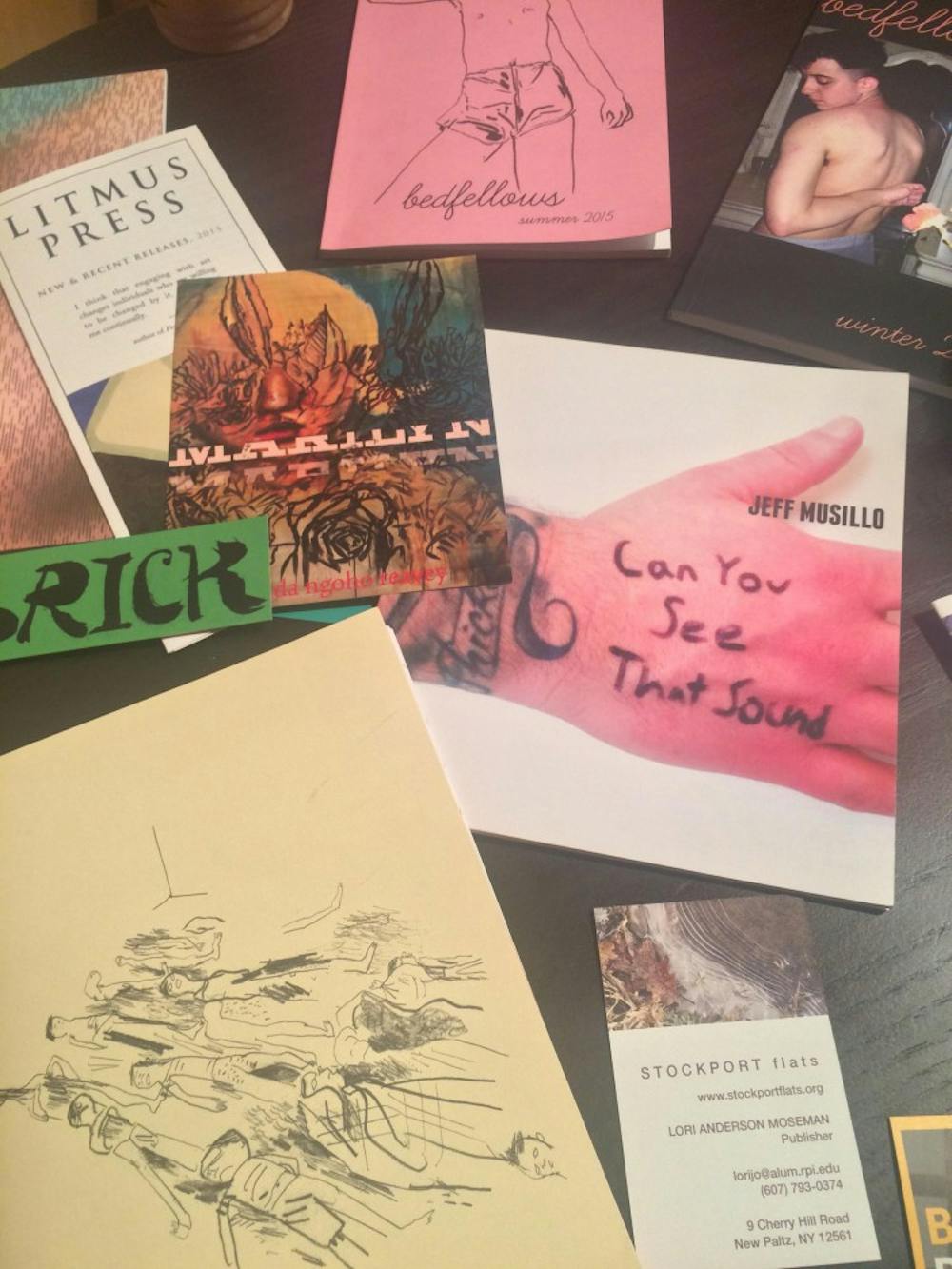The Tyler School of Art at Temple University was a little busier than usual this weekend, as artists and writers packed its lobby for the second annual Philalalia small press book and art fair. With names like Red Sofa Salon, Bloof, Monk Books and Least Weasel set up at vendor stations, it felt a little like the SAC activities fair, except without the screaming and forced pamphlets.
For those unfamiliar with the concept, small press, or “indie publisher,” books are essentially just what they sound like. That is, they aren’t part of monopolistic corporations, which gives them the time and the resources to focus on each piece as its own entity. As Lynne DeSilva–Johnson, managing editor of The Operating System, explained to me, she got into the business because she “wanted to be a part of something that recognizes talent without making struggling artists and poets pay crazy fees just for being published.” The Philalalia fair celebrates this unique industry by connecting the artists, writers, poets, designers, print makers, and art supporters involved in making these books, while also putting them on public display.
As I explored the various vendors’ materials, the combination of the visible and the written was a common theme for many of the works on display. My favorite vendor table featured what the authors call “comic poetry”—cryptic artwork accompanied by few or no words, leaving the meaning almost entirely up to the reader’s own mind. Here I picked up a zine by Warren Craghead with what looked like a pile of sleeping people on the cover. This one had maybe three words total in it, but I could tell as I was flipping the pages that things were getting more and more violent. As I was about to close it, I found some typed print on the back: “Drawn from the images of victims of a sarin nerve gas attack on Ghouta, Syria, on 21 August 2013…. All sales go to Save the Children’s Syrian’s Children Relief Fund.”
Social activism and nonprofit-ism are things for which the small presses are known. Many of the vendors featured works that focused on tangible, modern issues, perhaps in an attempt to open their readers’ eyes to the world around them. The works are unique and the techniques are new—but that’s what’s so cool about Philalalia. It brings together people from across the country that have the same struggles and passions, all while delivering to the public something raw and unapologetic, something that they couldn’t find on the shelves of a Barnes & Noble.







